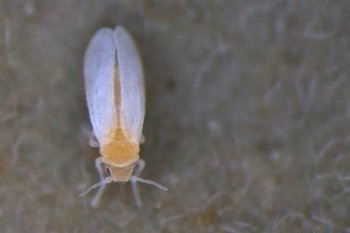
An additional problem is that the white fly has been seen to develop a strong resistance to insecticides. In response a group of international partners joined forces in the 'Indo Whitefly'-project, to make tomatoes white fly 'resistant'; Enza Zaden Enkhuizen, Plant Research International – part of Wageningen UR, Hortigenetics Research Thailand and East-West Seed Indonesia.
Worldwide, plant viruses cause huge damage to vegetable crops. "Growers combat them continuously," says Joep van Balen, product development manager at Enza Zaden. "You could try to make the plant resistant for viruses, but you can also keep the white fly away from the crops. For example, the plant has bristles, so the bugs can't land on the plant. Or, the plant excretes a substance which the white fly can't stand."
From 2008 till 2011 the Indo Whitefly project studied tomato and bell pepper populations to find the genes that are responsible for the rejection of the white fly. These genes can be used as the basis of the brewing. "That's pretty unique," Van Balen says. "Before, nobody had been successful in producing a marketable resistant variety this way. We developed markers, which will show which seedling is resistant to the white fly, so you could quickly develop new varieties."
Enza Zaden worked together with Plant Research International, Hortigenetics Research Thailand and East-West Seed Indonesia. "Some of these are actually our competitor, yet we cooperate successfully for years in Indonesia. We use the knowledge and locations of each other. Thanks to the Upcoming Market program and the scientific contribution of Plant Research International, we could start this consortium."
The partners now have the equipment to create new varieties. They expect the first seeds to be in the market in two years. "We could serve a large market area in the South and South-east of Asia. The growers will get higher yields, with minimal use of pesticides."
Source: RVO



 Classifieds
Classifieds



